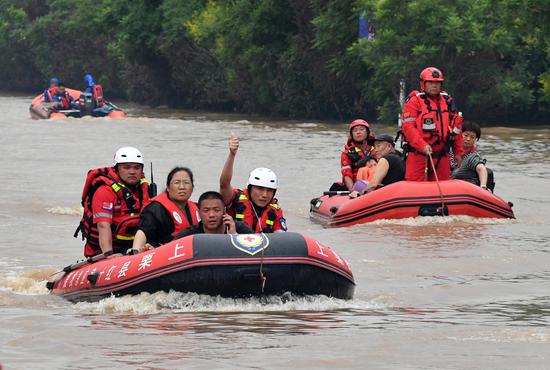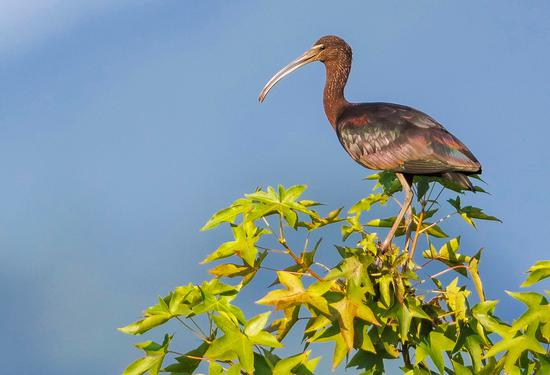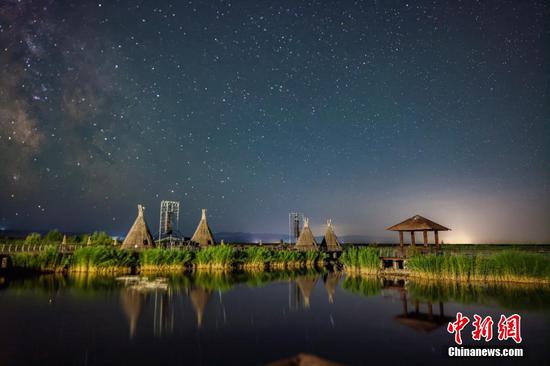
Rangers pose after an ecological and environmental inspection tour in Yushu, Qinghai. (Photo provided to chinadaily.com.cn)
Province benefits from ecological and environmental advances
Namjil, who grew up in a Mongolian yurt, has never seen such a rich abundance and diversity of wildlife roaming his family's pasture in Golmud, Qinghai province.
There are herds of bharal, also known as blue sheep, Tibetan antelope and predators such as snow leopards and wolves.
The 29-year-old, a nomad who runs the pasture, home to more than 1,000 sheep and 80 yaks, takes pride in his other role as a ranger tasked with protecting wildlife and ecology in the vast expanse of grasslands near the Kunlun Mountains.
Every month, Namjil joins a team of rangers on a three-day expedition that takes them across wetlands and grasslands looking for poachers and those engaged in illegal mining. The rangers also collect garbage and other trash.
They record traces of wildlife, monitor changing conditions in water sources and wetlands, and rescue injured animals.
Namjil earns 1,200 yuan ($167) a month for this work, but what really motivates him is the emotional attachment he forms with wildlife. "You develop a kind of emotional bond with the wild animals after doing this job for a long time," he said.
The herdsman is one of more than 145,000 rangers employed in Qinghai to protect the western province's ecology and environment as local authorities step up conservation efforts.
Dubbed China's "water tower", Qinghai boasts the sources of Asia's three longest rivers and the Three-River-Source National Park, the nation's first national park, which is located in the Sanjiangyuan region.


















































 京公网安备 11010202009201号
京公网安备 11010202009201号